Garmin just released the new Fenix 8 Pro fitness and outdoor smartwatch, which brings LTE and satellite connectivity to let you ditch your phone at home, and still be connected well beyond mobile coverage area. There's also a nutso US$2,000 price tag on the "top-end" model, and I'll explain what's up with that (and the use of quotes) later on.
But first, let's just look at what we've got here. The 8 Pro can make phone calls and send texts and voice messages over LTE, and also supports Garmin's LiveTrack features for sharing your adventure routes and real-time location. It also gets local weather updates, and will work in different regions around the world. If you're way out in the wilderness, it can also ping satellites to send check-ins, emergency messages, and regular texts.
That's made possible through Garmin's InReach subscription service, which starts at $7.99 a month for LTE-M and satellite connectivity, calling and texting, and the lot. Satellite check-ins and texts when you're beyond the reach of cell service will cost you per ping on the individual plan. You can level up to pricier plans; $49.99 a month unlocks unlimited messaging via satellite.
Unlike other satellite positioning and navigation devices that use Low Earth Orbit multi-satellite networks to pinpoint your location and beam data with global coverage, the 8 Pro uses a Geostationary Earth Orbit system, with a single satellite per region from Skylo's constellation across the US and Europe.
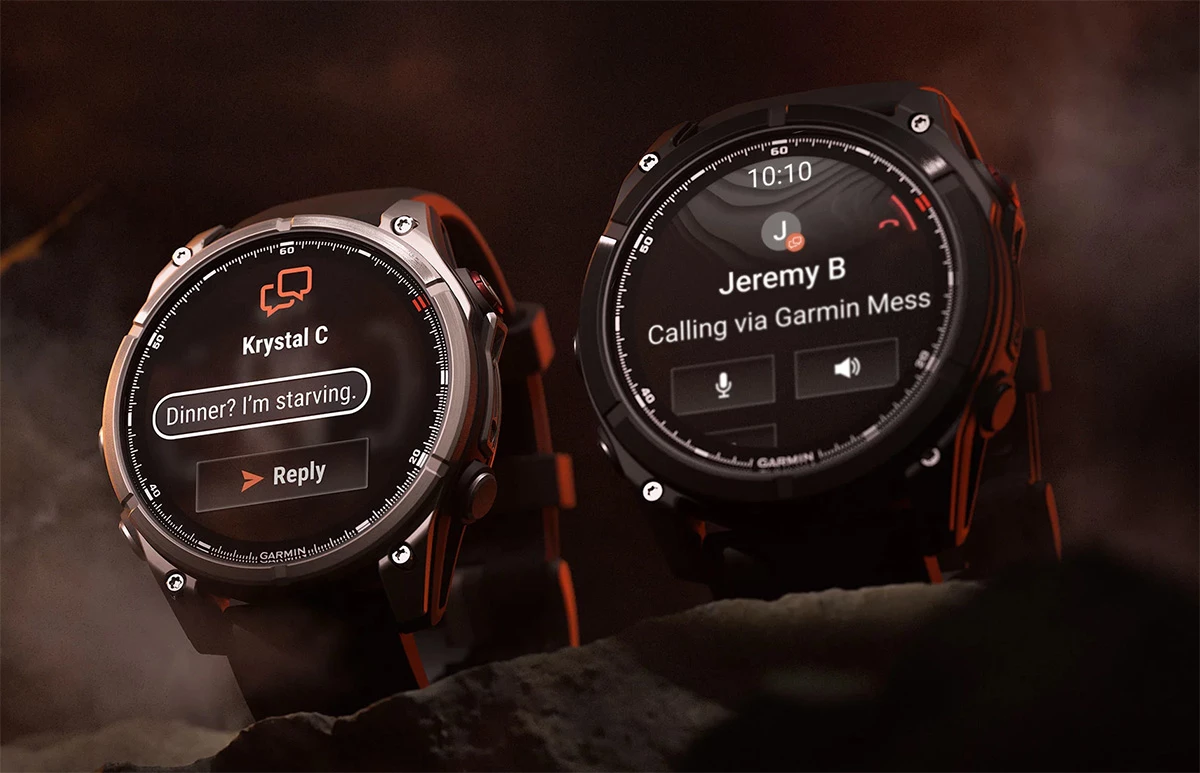
Each of these satellites is in a fixed position in space, so you might need to position yourself somewhere clear of obstructions like trees to be in clear view of the satellite to use the service. Garmin says you can expect messages and location coordinates to send within 10 seconds when you're correctly oriented.
The 8 Pro can also detect when you've had a fall and send out an SOS. You can manually do so as well, and Garmin Response coordinators will notify 911 on your behalf to have emergency services dispatched to your location.
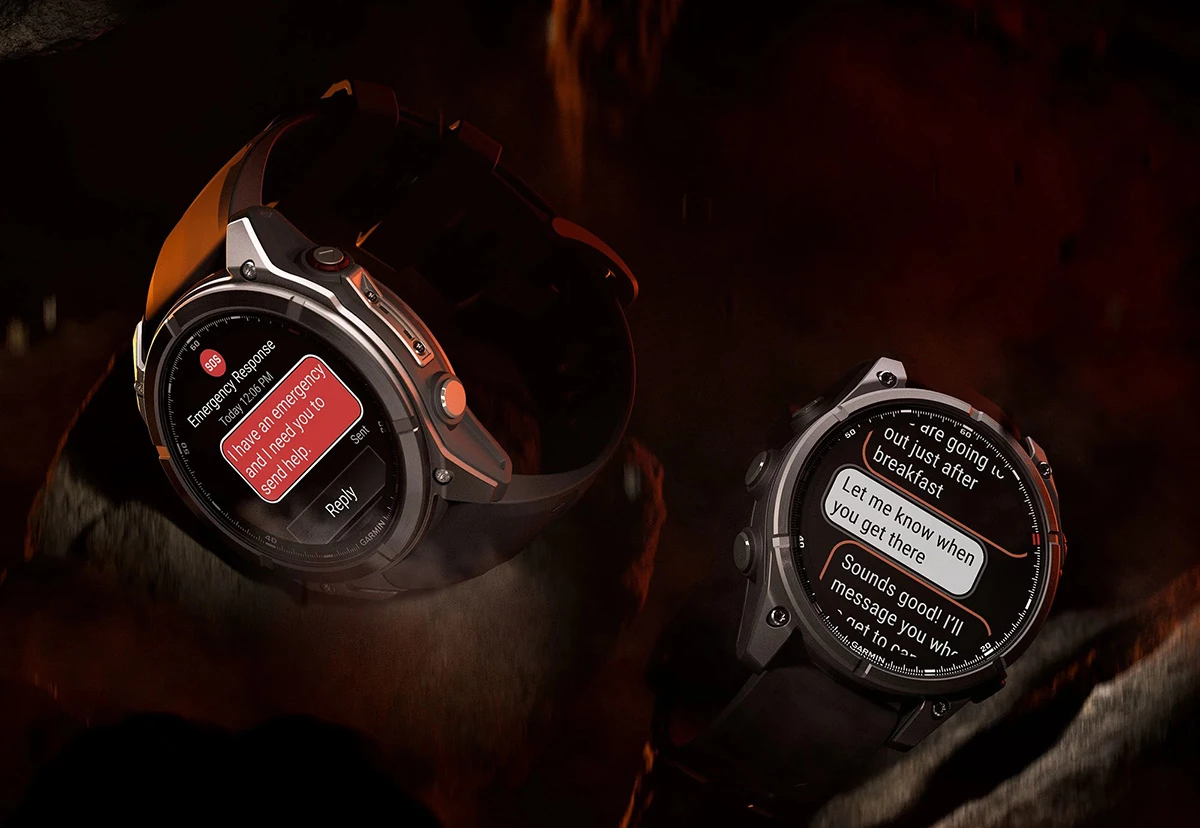
If you do choose to carry your phone, the 8 Pro will preferentially use its mobile service via Bluetooth, and then automatically switch to its own LTE and satellite networks when those work better.
Satellite service is certainly nice to see on an outdoor-focused wearable like this – but it's a bummer that Garmin is putting emergency messaging via satellite behind a subscription plan when Google's Pixel Watch 4 LTE edition is making that available for free.
All the other good stuff
There are three three Fenix 8 Pro models to choose from: two AMOLED display-equipped variants in 47-mm and 51-mm sizes, and a 51-mm version with a MicroLED display that promises to get ultra bright outside.
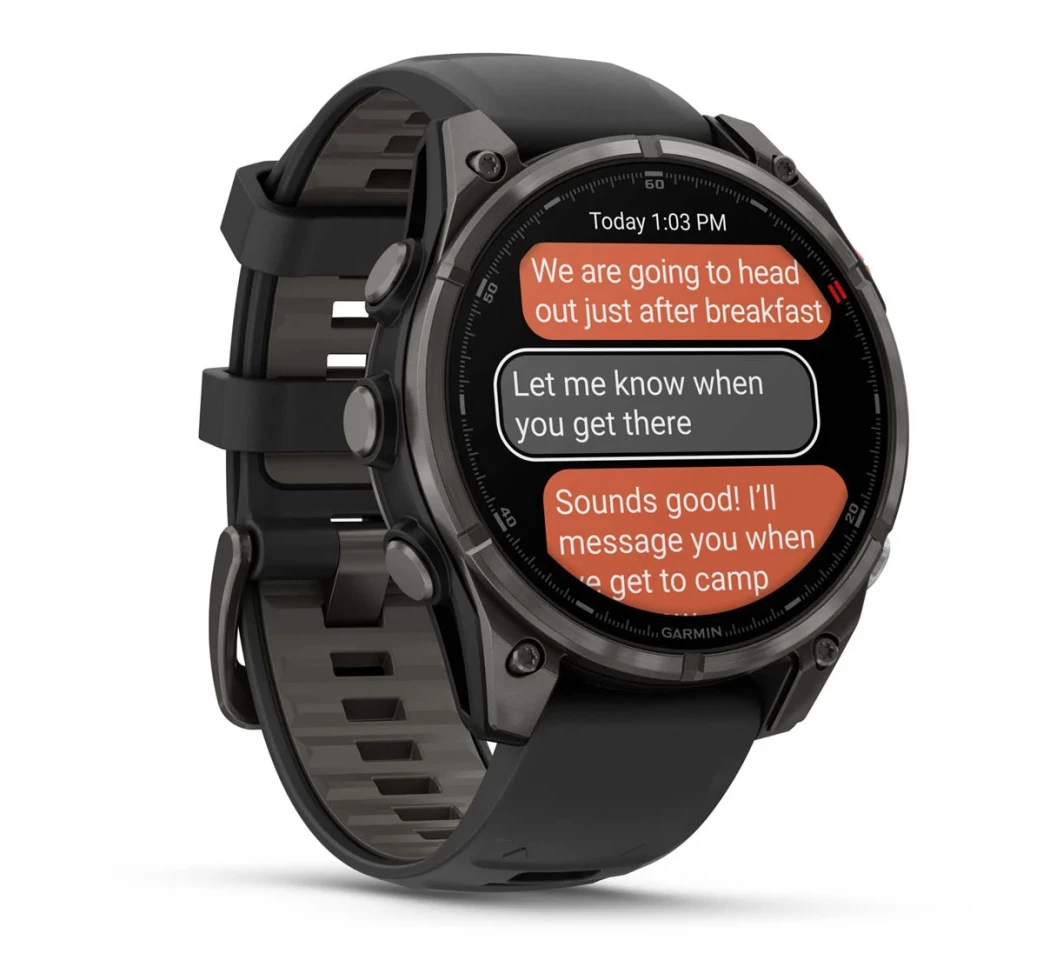
All of these feature titanium bezels, Garmin's usual bevy of fitness tracking and navigation tools, onboard storage for music, contactless payments, an LED flashlight, and scratch-resistant sapphire glass.
What's this MicroLED display about?
Garmin says its MicroLED screen – arguably the first one ever on a watch – packs more than 400,000 individual LEDs to deliver 4,500 nits of brightness. The idea is for it to be legible in bright sunlight, and even when viewed off-angle. However, outdoor gear reviewer Ray Maker noted this screen isn't actually much more readable than the AMOLED version, and in this video, that certainly seems to be the case.
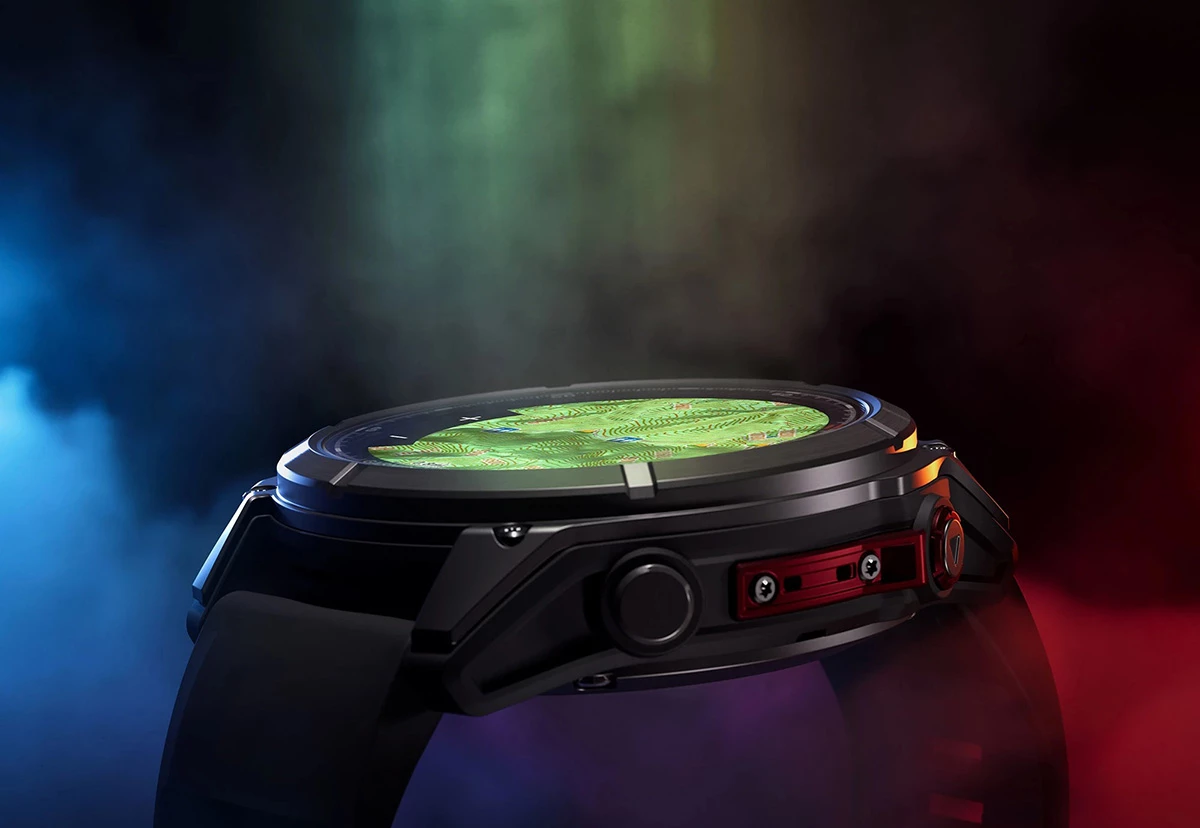
What's more, the MicroLED version's battery life is far less than the AMOLED one (just four days in always-on smartwatch mode, compared to 15 days on the 51-mm AMOLED). It's also only available in the largest 51-mm size, is the thickest of the bunch at a hefty 17.5 mm, and the heaviest at 93 g (3.28 oz). All that makes it an uncomfortable pick for folks with smaller wrists – including most women.
Oh, and did I mention the MicroLED model is way more expensive than the others? The 47-mm AMOLED can be had for $1,200, the 51-mm AMOLED comes in at $1,300, and the MicroLED is priced at $2,000. With poorer battery life, a bigger build, and not much upside in terms of brightness when compared to Garmin's capable alternatives, this one is hard to recommend.
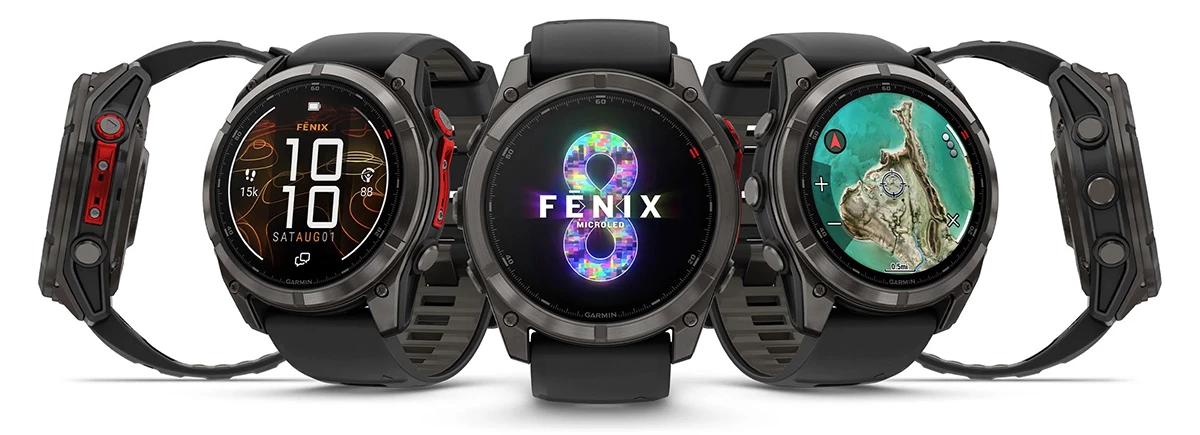
That aside, the 8 Pro lineup is worth a look for outdoorspeople looking for a way to stay connected without adding a lot more bulky gear to their kit.
Find the Fenix 8 Pro on Garmin's site, where all three models will be available starting September 8.
Source: Garmin
Note: New Atlas may earn commission from purchases made via links.







